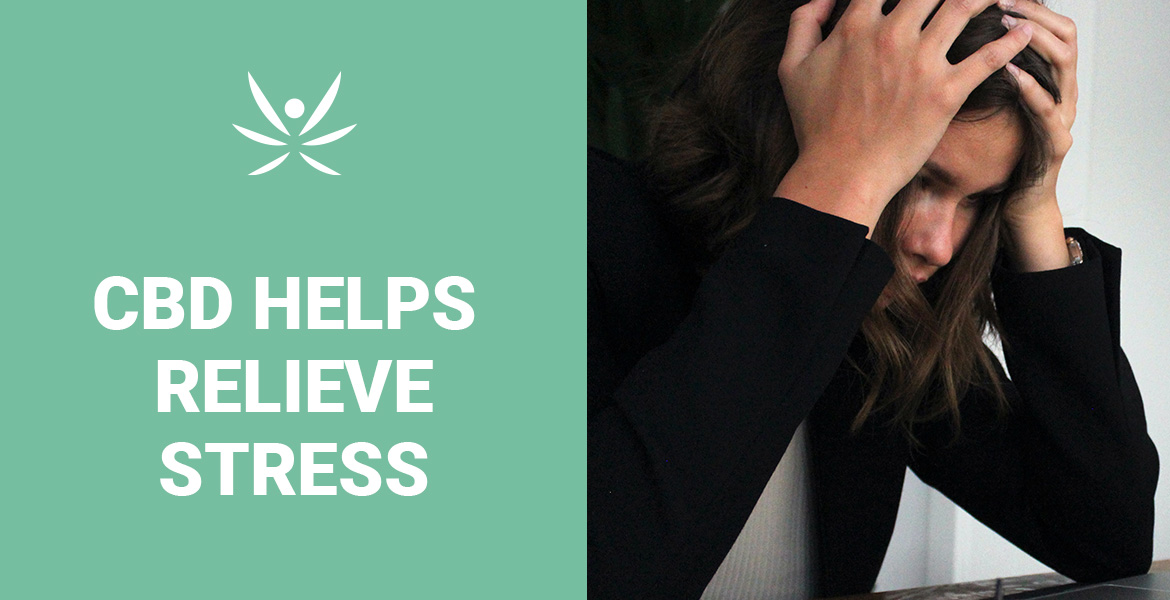Stress is an ever-present problem in our modern lives, with our fast-paced lifestyles and increasing responsibilities. While technology can offer us distractions, it’s difficult to truly escape the pressures of life, and sometimes we need something stronger to help us cope. In this article, we will explore how CBD works in the body, the various forms it comes in, and how it can be used to effectively manage stress. Read on to learn more about this increasingly popular remedy!
How CBD can help you to relieve stress
CBD has been found to have potential benefits for relieving stress and anxiety. According to a review of studies published in the Journal of Clinical Psychology in 2019, CBD may help reduce anxiety and improve sleep in people with anxiety disorders. CBD works by interacting with the body’s endocannabinoid system, which regulates various physiological processes, including stress response. It may also promote the production of serotonin, a neurotransmitter associated with mood regulation. While more research is needed, preliminary evidence suggests that CBD may be a useful tool for managing stress and anxiety.
What are the benefits of taking CBD for stress relief?
There are many benefits to taking CBD for stress relief. CBD has been shown to have potential benefits for relieving stress and anxiety. According to a systematic review of clinical studies published in the Journal of Psychopharmacology in 2020, CBD may help reduce symptoms of anxiety, such as fear, tension, and avoidance behaviors. CBD may also have positive effects on stress-related physiological responses, such as heart rate and cortisol levels. Furthermore, CBD may be a safe and well-tolerated treatment option for individuals with anxiety disorders. While further research is needed to fully understand the mechanisms and effectiveness of CBD for stress relief, preliminary evidence suggests that it may be a useful tool for managing stress and anxiety.
What are the side effects of taking CBD for stress relief?
While CBD is generally considered safe and well-tolerated, it can have some side effects. According to a review of clinical studies published in Cannabis and Cannabinoid Research in 2017, common side effects of CBD include fatigue, changes in appetite, and diarrhea. CBD can also interact with other medications, so it is important to consult with a healthcare provider before taking CBD if you are taking any medications. Additionally, the long-term effects of CBD use are not yet fully understood, and more research is needed to determine its safety and efficacy for various conditions.
How to take CBD for stress relief
There are a few different ways to take CBD for stress relief. You can take it orally in the form of capsules or oil, or you can inhale it through vaporization. You can also rub it into your skin in the form of a cream or ointment or CBD Massage with a professional. The effects of CBD typically last for several hours, and there are no known side effects.
If you’re interested in trying CBD for stress relief, talk to your doctor first to make sure it’s right for you.
Conclusion
In conclusion, CBD can be a great natural remedy for relieving stress and anxiety. It is important to note that it should not replace professional medical advice or treatment, as there are limits to what it can do. That said, if you’re struggling with stress and anxiety, then giving CBD a try may be beneficial for you. With the right dose of CBD tailored specifically to your needs, you may find yourself feeling calmer and more in control of your emotions sooner than later.
References:
- Blessing, E. M., Steenkamp, M. M., Manzanares, J., & Marmar, C. R. (2020). Cannabidiol as a potential treatment for anxiety disorders. Journal of Psychopharmacology, 34(7), 711-724.
- Iffland, K., & Grotenhermen, F. (2017). An update on safety and side effects of cannabidiol: A review of clinical data and relevant animal studies. Cannabis and Cannabinoid Research, 2(1), 139-154.
- Shannon, S., Lewis, N., Lee, H., & Hughes, S. (2019). Cannabidiol in anxiety and sleep: A large case series. The Permanente Journal, 23.)


Preventing common infections involves consistent hygiene practices and awareness always fundamental. Understanding how germs spread enables effective prevention methods daily always practical. Learning proper handwashing is one of the most impactful measures. Knowledge about recognizing infection symptoms prompts timely care. Access to clear public health messaging on infection control is vital.
What a great article keep them coming!